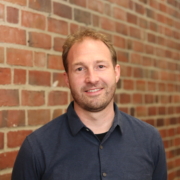Christoph Schaub works as a postdoctoral research associate in German literature and cultural studies at the University of Vechta, Germany. Since 2023, he is also contritbuting as a research group member at the Leibniz-Centre for Literary and Cultural Research Berlin to the Horizon Europe-project “The Cartography of the Political Novel in Europe” (2023–2027). After earning his Ph.D. in Germanic Languages from Columbia University in 2015, Christoph held postdoctoral positions at Columbia and Duke University. He is the author of “Proletarische Welten: Internationalistische Weltliteratur in der Weimarer Republik” (De Gruyter 2019; “Proletarian Worlds: Internationalist World Literature in the Weimar Republic”) and has published widely on the literature and culture of the labor movement during the interwar years; intersectionality and working-class expressions in autobiographical and autofictional writing from the 1970s to the present; literature and globalization; urban culture; literature and politics; and Afro-diasporic popular music (techno, hip-hop, reggae / dancehall). In his work, Christoph combines materialist approaches to literary production with an attention to aesthetic form and publics, and he is particularly interested in the political and social dimensions of literary and cultural representation.
PROJECT STATEMENT
The Working Class and German Auto(socio)biographical and Autofictional Writing, 1970s to the Present
The project looks at German-language texts from the 1970s to the present in order to analyze the changing representation of the working class that occurred in the context of three historical transformations: deindustrialization; the hegemony and crisis of neoliberalism and its subject formations; the rise of identity politics and diversity discourses. It focuses on auto(socio)biographical and autofictional texts by workers and “transclasses” (C. Jacquet) and thus concentrates on working-class expression in literature and literary practices of advocacy. In tension with genres of documentary literature, these modes of writing engage emphatically with the private sphere, individuality, and family histories. Often, they tend to critically engage with what counts as political in their publics of production and reception. Discussing this class of texts, the project asks for how deindustrialization and debates about diversity and identity have shifted what is understood as the working class in German literature and it probes the hypothesis that this transformation went along with more diverse, more explicitly intersectional, and less – or in different ways – normative representations of working-class subjectivities. Moreover, the project seeks to discuss the possibilities and limitations of a politics of literary form that emphasizes the personal both as a way to represent working-class reality and as means to create political awareness. It asks for the extent to which this emphasis on the personal is connected to neoliberal subject formations and the relative weakening of socialist and collectivist politics. By spanning an arc from the 1970s to the present, the project contributes to telling the pre-history and history of the “politics of our time,” as it is articulated in contemporary German literary publics through a new interest in precarious work and the working class, a politicization of literature, and proliferating entanglements of the personal with diversity.
Email: christoph.schaub@uni-vechta.de
Websites: https://www.uni-vechta.de/kulturwissenschaften/lehrende/schaub-christoph





